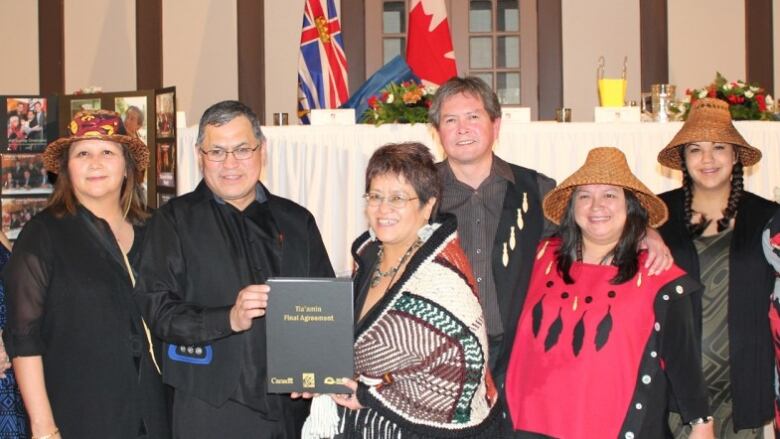Tla'amin Nation implement treaty with B.C., Canada
Treaty confirms Tla'amin control of 8,000 hectares near Powell River

After more than 20 years of negotiation, the Tla'amin First Nation has implemented a treaty that gives it control of its traditional territory around Powell River, B.C.
It means the community of more than 1,000 people are no longer governed by the Federal Indian Act and has the power to design its own laws and make its own land-use decisions.
"Tla'amin's legislature passed a comprehensive suite of laws this morning that provides an immediate basis for the exercise of self- government authority," says a statement released by the B.C. government.
One of the chief negotiators for the Tla'amin, Roy Francis, says today's implementation was a long time coming
"It's hard to describe. Living under the Indian Act is like living under somebody else's rules and somebody else's decision making.... It was a very paternalistic type relationship and I think we've managed to work our way out of that relationship," said Francis Tuesday morning.
The treaty also means the Tla'amin Nation is now in control of about 8,323 hectares of land, including traditional territory and waters around the Powell River area, Lesqueti, Texada, and Cortes Islands, and the Comox Valley.
In addition, the treaty provides:
- A one-time capital transfer of approximately $31 million over ten years.
- An economic development funding of approximately $7.3 million.
- A fishing vessel fund of $0.3 million.
- $0.7 million annually in resource revenue sharing for fifty years.
Not without controversy
The treaty with the provincial and federal governments was given royal assent in 2014 and the Tla'amin Nation has been preparing for its implementation by drafting laws and preparing for self-governance.
But it was not without controversy and was strongly opposed by some members.
The Tla'amin is the eighth First Nation to settle a constitutionally protected modern B.C. treaty, which is the ultimate form of reconciliation. Previous modern treaties have been reached by the Nisga'a, Tsawwassen and five Maa-nulth First Nations.
"This is a day of triumph for all Tla'amin people. I'm proud of my community for choosing a path of change, that while difficult at times, provides us with a new beginning as a self-governing nation free of the Indian Act," said a statement released by Chief Hegus Clint Williams.
"Our treaty will benefit all of our citizens, and especially our children our future leaders who will grow up in a world of possibility and opportunity. Our lands and our rights are secure, our partnerships with our neighbours are strong, and our community is on a journey of healing and hope. Our future is bright."












_(720p).jpg)


 OFFICIAL HD MUSIC VIDEO.jpg)
.jpg)



























































































